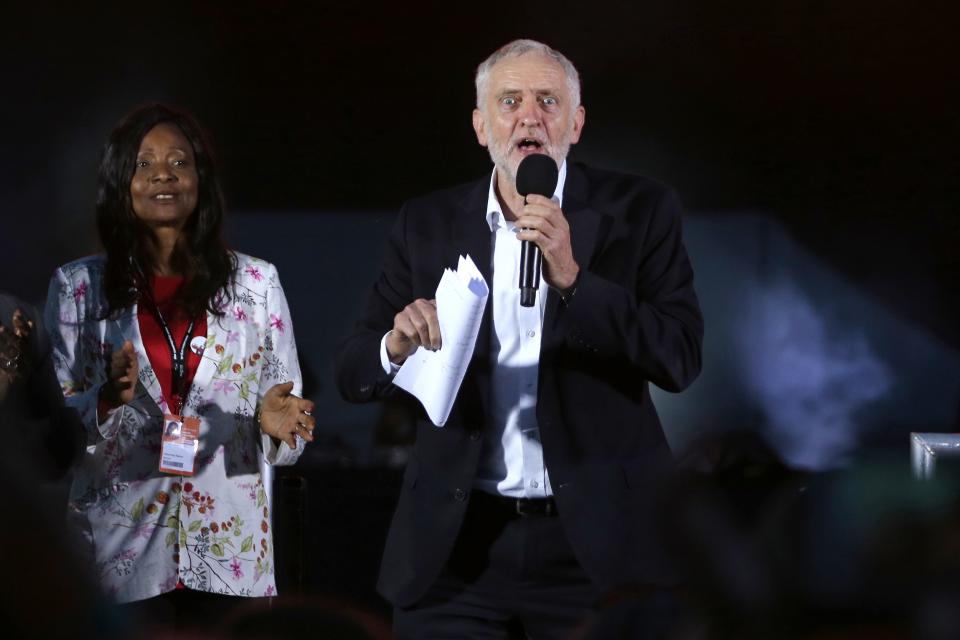How would the UK economy react to a Corbyn government?

Few people would argue that had David Cameron returned from Brussels in the spring of 2016 with some concessions from Chancellor Merkel on the EU’s willingness to reform, the result of the June Referendum might well have been a ‘slam-dunk’ vote to remain.
However, the electorate was far from appeased and the rest is history. The UK has entered its most turbulent period of political history and uncertainty since 1945. There is now the possibility of a Labour government being elected on an agenda more ‘left-wing’ than that under Clement Attlee, by a disconsolate and embittered majority, driven by young intellectual firebrands on social media in a thoroughly nasty and vituperative manner.
MORE: 7 charts that show Theresa May’s Britain is not ‘strong and stable’
In fairness to the 18-40 year olds, their prospects, despite unemployment falling from 8% to 4.5% in the last nine years, look unappetising with mountains of student debt, poor remuneration and little prospect of getting on the housing ladder.
So, just how would international markets react to a Corbyn administration?
It would easy to paint a picture of global rejection, with sterling falling out of bed, the UK stock market going to ‘hell and a hand cart’ and gilt yields leaping like the proverbial grilse. If adverse reactions of this nature were to manifest themselves, the country would require billions more to its already gargantuan debt. Inevitably taxation would need to rise very steeply to service this debt, with no guaranty that the UK’s books would be balanced
DAVID BUIK: MORE ANALYSIS ON YAHOO FINANCE
Leaving the ERM was a blessing in disguise for UK
Brexit has become a phoney war – and that’s dangerous
Compared to banking, private equity is practically naked in its exposure to Brexit
Brexit: What you should consider when investing in UK equities
Political instability could see investors could pay the price for mob oratory
The great conundrum is, will the Treasury, the Bank of England and other respected government advisers allow a very radical state driven political and financial agenda of Messrs Corbyn and McDonnell to be adopted, or will they be able to force this reactionary government to water down its over-zealous ambitions?
Much of Labour’s increased spending plans, which would include re-nationalising the railways, power (£185 billion) water companies (£69 billion) and the Royal Mail (£3.3 billion), plus dispensing with PFI contracts (£59.4 billion) have an eye-watering gargantuan cost.
Also increased spending on schools with a massive commitment to the NHS and housing plus accommodating significant pay increases across the public sector, which have yet to be properly costed and verified, would need to be added to Labour’s profligate ambitions to re-emphasise the public sector’s role at the expense of the private sector.
What is also of considerable concern is the fact that there may be no fair shareholder value calculated for taking some of these assets back into public ownership. We are told Parliament could decide the final consideration.
Labour’s plans would cost an estimated £310 billion and shadow chancellor John McDonnell has brazenly told not only the hard-core ‘left’ but also the media and the floating voter that Labour will borrow billions to add to an already massive borrowing requirement to achieve its goals.
To date I have painted a dreary but logical picture. Labour could conceivably persuade the debt markets by borrowing a large amount, properly accounted and verified for infrastructure spending. According to my respected colleague at Panmure Gordon, Simon French, this would be classified as ‘good’ borrowing and therefore unlikely to incur the wrath and indignation of the international fixed interest investors.
Apart from borrowing, this ideologically inspired Labour administration would have to raise taxes handsomely across the spectrum. Many would be happy with a 50-55% top rate of taxation, if that was the only throw of the dice. But the electorate is a bit more canny than that.
MORE: Why this fund manager is protecting his portfolio against ‘Corbyn volatility’
In would come a property tax and a draconian inheritance tax. Of course corporation tax would go up, as promised. A Labour government has the luxury of attempting to recalibrate the economy in the hope of diluting the unacceptable level of inequality, which would be electoral suicide for the Conservatives.
However socially laudable these increased tax measures are, there would be a considerable ‘fall-out’ from business industry and commerce. Incentive to invest from home and abroad would disappear overnight.
Shadow chancellor McDonnell thinks he will persuade fund managers to invest in technology. When these fund managers find out the full content of Labour’s Pandora’s Box, they’re likely to want otherwise. As for his plans for a National Investment Bank, the capital will need to come from the government, as private investment for that project would be moribund. The public must also remember that Brexit for the next few years could mean lower tax receipts.
MORE: Here’s how shares have performed under every prime minister since 1970
How adversely would markets be affected? The pound would probably fall below parity with the euro and below $1.20 to the dollar. Gilt yields would rise sharply. Inflation much higher than 3% would be inevitable. Interest rates consequently would have to go up, in an attempt to protect the pound. Unemployment would ratchet up from 1.7 million to about 3 million. Business confidence would be shot to ribbons. Investment would dissipate. Retail activity would contract. The Dark Days of the 70s would be knocking at the door, with the UK staring over a vortex of recession, beckoning help from the IMF. The FTSE 100 would fall maybe no more than 10%, as company earnings remain significantly dollar related. IPO and M&A activity would come to a grinding halt.
This a worst case scenario. Let’s hope Labour’s advisers persuade the Corbyn team not to throw the baby out with the bath water.

 Yahoo Finance
Yahoo Finance 
